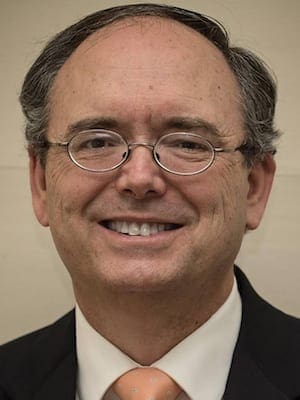I recently read a 1955 novel by Leigh Brackett titled “The Long Tomorrow.”
It’s set a couple of generations after a nuclear war has devastated Earth’s cities. The new constitution of postwar America forbids the building of cities. People live only in small towns and rural areas.
A major crisis in the book revolves around the desire of a man to build one more warehouse than he’s allowed by law.
The limit he wants to violate is in place to keep a city from developing. Things don’t go well for him.
Because the war had little effect on the simple lifestyle of Mennonites, many people have adopted their ways, leading to New Mennonites being the dominant religious and social force in America.
Much of the story’s tension comes from the postwar society’s anti-science and anti-technology stance.
It is an understandable position, given that scientific progress, especially in nuclear science, contributed to the mass destruction experienced in the not-too-distant past.
As the novel’s plot develops, we find that some technology still exists. Unbeknownst to most people, some people are secretly still working on nuclear power, allegedly for good purposes.
Len, the young man who is the protagonist of the story, struggles mightily between the simple ways of his raising in a New Mennonite community and the possibilities of resumed technological progress.
I won’t give away the resolution, such as it is, in case you decide to read the book, which I recommend you do.
Reading “The Long Tomorrow” made me think about what might happen after an apocalyptic event such as a nuclear war. It also made me think about the skills that would most help civilization survive in the aftermath of such an event.
Some of us remember the 1983 television film, “The Day After.” It’s about a nuclear exchange between the United States and the Soviet Union.
A few years ago – I think it was on the 30th anniversary of the film’s first airing in 2013 – I heard a discussion about it.
One person said that while the film dealt only with the immediate aftermath of the war, she’d like someone to make a sequel about its extended aftermath.
How, she wondered, would civilization survive and recover? She pointed out that people with practical skills would be very important in such a world.
Lately, I’ve seen many people on social media promoting the value of vocational education.
I agree that people should be encouraged to follow the educational and career paths that suit their gifts and interests.
Besides, we need people who know how to do practical things. We need welders, electricians, plumbers, mechanics, carpenters and more.
Try to get along without them and see how far you get. As someone who doesn’t have such skills, I admire those who do.
But we also need the people who study science, mathematics, technology and engineering. The advances they bring about have done, do and will do much good.
It is also true that such advances can be used in negative ways that bring about destruction, as happened in the novel, “The Long Tomorrow,” and in the film, “The Day After.” That’s why scientists should also study ethics.
We also need the musicians and the writers. We need the philosophers and the poets.
We need those who can dream the future and those who can build it.
We need for all of us to find and do our part.
Editor’s note: A version of this article first appeared on Ruffin’s blog, On the Jericho Road. It is used with permission.


